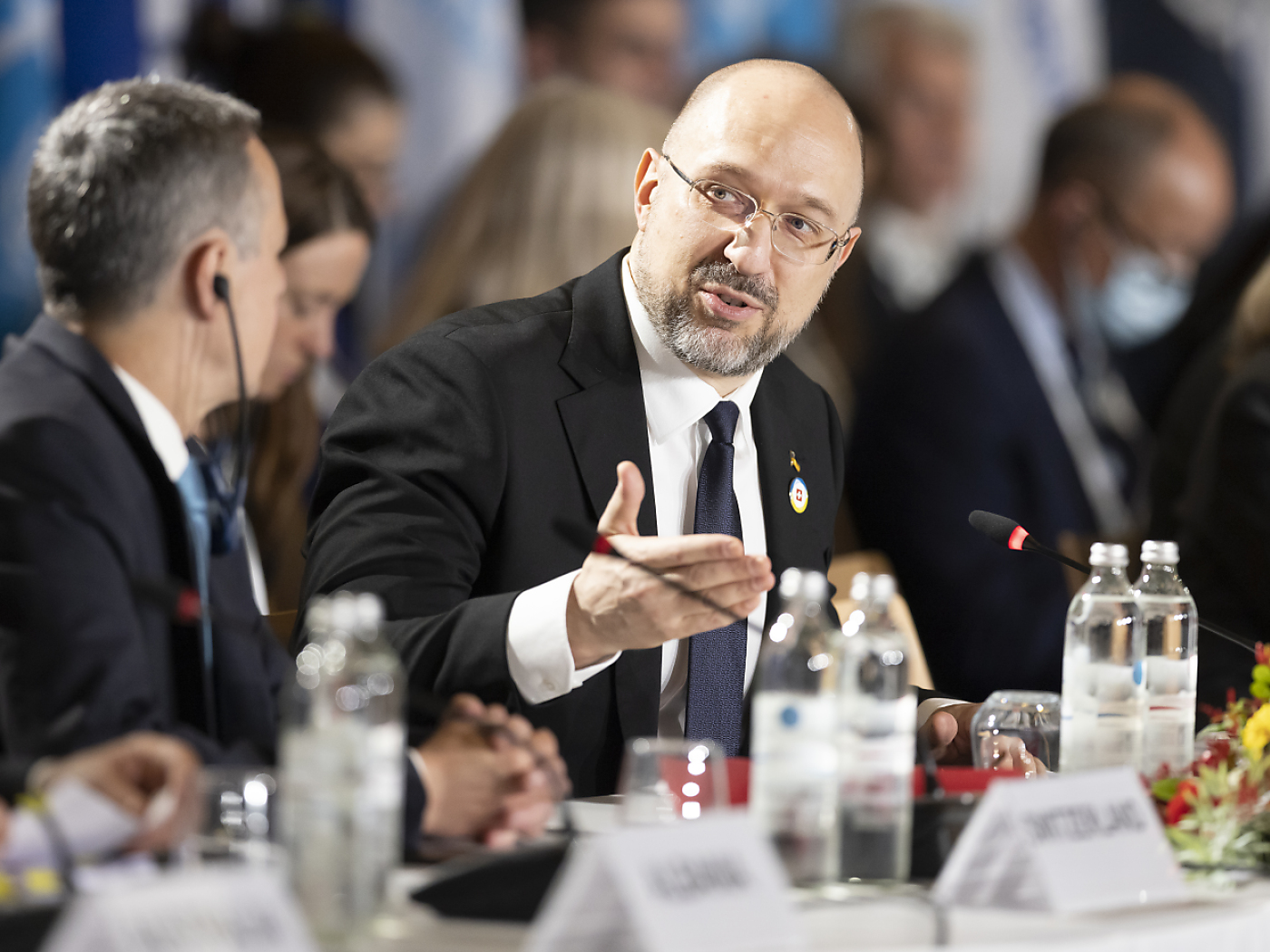
Ukraine anger toward Switzerland over peace plan a ‘misunderstanding’

According to Ukrainian Prime Minister Denys Shmyhal, the anger toward Switzerland over the Sino-Brazilian peace plan was due to a "misunderstanding". He said that he did not doubt Switzerland's support on the road to peace.
+Get the most important news from Switzerland in your inbox
In an interview with the Neue Zürcher Zeitung on Monday, Schmyhal said that a Swiss representative had attended an event organised by Brazil and China as an observer on the sidelines of the United Nations General Assembly. The representative did not agree to the negotiation plan.
“We have clarified this issue. It was a misunderstanding,” said the Ukrainian prime minister.
+ Switzerland welcomes China-Brazil peace initiative for Ukraine
There was no doubt that Switzerland supports the path to peace on the basis of the UN Charter and international law, he added. Everyone is convinced that for the next peace summit, a compromise will need to be found with Brazil, China and India.
Schmyhal wanted to point out that Ukraine was grateful to Switzerland “for organising the Bürgenstock peace conference [last June] and supporting President [Volodymyr] Zelensky’s peace formula.” He discussed this with the Swiss president, Viola Amherd, and Foreign Minister Ignazio Cassis last Thursday. Schmyhal was in Lausanne to take part in the Ukraine Mine Action Conference.

More
‘Ukraine can be a tipping point’ for ridding the world of landmines
Kyiv expressed displeasure
At the end of September, Ukraine expressed its displeasure at Swiss support for a peace plan presented by China and Brazil for an end to the Russian-Ukrainian war. “All initiatives that do not contain a clear reference to the UN Charter and do not guarantee the full restoration of Ukraine’s territorial integrity are unacceptable,” the foreign ministry in Kiev wrote in a commentary.
Switzerland supports the initiative by China and Brazil because it calls for a ceasefire and a political solution to the conflict, a spokesperson for the Swiss foreign ministry told the Keystone-SDA news agency.
Translated from German with DeepL/gw
This news story has been written and carefully fact-checked by an external editorial team. At SWI swissinfo.ch we select the most relevant news for an international audience and use automatic translation tools such as DeepL to translate it into English. Providing you with automatically translated news gives us the time to write more in-depth articles.
If you want to know more about how we work, have a look here, if you want to learn more about how we use technology, click here, and if you have feedback on this news story please write to english@swissinfo.ch.

In compliance with the JTI standards
More: SWI swissinfo.ch certified by the Journalism Trust Initiative






























You can find an overview of ongoing debates with our journalists here . Please join us!
If you want to start a conversation about a topic raised in this article or want to report factual errors, email us at english@swissinfo.ch.